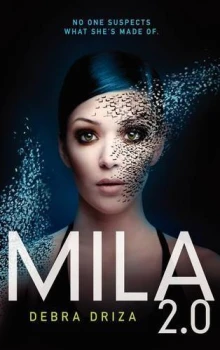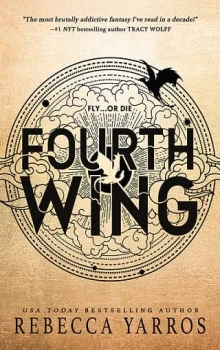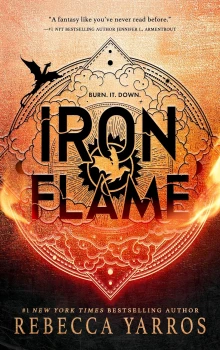Fifteen
It wasn’t until we’d left Minneapolis far behind that I was ready to broach the topic again. “So how do I make the GPS work?”
Mom shifted in the seat, her eyes never moving from the rearview window. She must have been really stressed, if even the idea of explaining my GPS feature didn’t perk her up.
My hands tensed.
“Now that I reinitialized all your functions, it will update wirelessly, so you’re always current. As far as activating it . . . you just issue the GPS command.”
The GPS command. Right. I liked how she made it sound so everyday, like toast and orange juice in the morning.
Feeling like the biggest fool in Minnesota, I muttered, “GPS.”
“Not out loud. In your head,” she said, with a hint of a smile in her voice this time.
Her amusement made me grit my teeth. I unclenched my jaw while passing a slow-moving Buick on my left, then concentrated.
GPS.
Deep down, I didn’t really expect it to work—okay, maybe a little piece of me hoped it wouldn’t work—so I jerked in my seat when the word blinked red behind my eyes.
Like magic, a glowing green map unfurled before me, unleashing a detailed schematic of Minnesota. And there we were, a tiny, blinking orange dot.
I waited, waited for the world to quit swaying under our car, for my mind to quit fighting itself. It was disconcerting, because half of my brain was trying to spit the image out like it was a sour swig of milk, while the other half held on tightly, refusing to budge. And despite my very human desire to get rid of the monstrosity, the thing that marked me as different, the android side was winning. Hard as I tried, I couldn’t make the map disappear.
“Turn it off. How do I turn it off?”
My voice sounded weak, faint, even to my own ears. I felt rather than saw Mom’s concern as she turned toward me. My hands clenched the wheel to keep the Tahoe from swerving.
“GPS off.”
I latched onto the phrase with a gulp of desperation.
GPS off.
The war in my head ended the instant the map vanished.
“What’s wrong? Are you okay?”
If you could be okay with a throbbing brain, then sure. I was fine. “I just . . . don’t want to look at it right now.”
“Okay.”
Silence stretched between us, awkward, heavy. Full of lies and betrayals. But underneath all the anger, the hurt, I had to admit I was grateful for her presence. And despite wanting to call her, to think of her as, Nicole, I couldn’t quite overcome the programming in my brain that made me think of her as Mom.
I stared glumly ahead. I had a long trip to work on that, though.
Once again I felt her focus on me. A moment later she said, “I think we should pull over for the night soon. It’s a little risky, but I need to be fresh for tomorrow, at the airport. One mistake, and . . .”
She didn’t finish, and I didn’t ask.
“Anyway, we need to change our appearances, too. To match our new passports.”
New passports?
Digging into her purse, she pulled out two blue laminated folders and handed one to me.
Two laminated folders that held brand-new futures—futures I wasn’t sure I wanted. I flipped open the passport and gave the information a cursory glance.
Just yesterday, I’d discovered I wasn’t Mila the girl, but Mila the android. Now I no longer got to be Mila at all. My new persona was Stephanie, a Photoshopped image of me with short, jagged black hair.
At the rate I was going, I’d never figure out my true identity.
“You didn’t even ask,” I muttered under my breath. It was a tiny thing, given the events that had transpired. So tiny. Yet, just for once, I would have liked some input into my own future, even if that only meant picking out a phony name and hairstyle.
“What?”
“Nothing. Where should I pull off?”
Mom drummed her fingers against her leg, apparently lost in thought. Finally she said, “Doesn’t matter. Anywhere between here and Chicago. We’ll try to find a motel that looks a little run-down, where they’re more likely to let us have a room without asking for ID.”
A run-down motel, a run for the border. I’d appreciate it if sometime soon, things would start looking up.
At the next decently sized exit that advertised gas-food-lodging, I pulled off the freeway. A couple of nicer-looking chain motels hovered near the off ramp, but Mom shooed me past them. I drove farther down the street until we came to one that satisfied her, one with only three cars in the parking lot, a beaten-down two-story with a neon sign advertising VACANCY.
After accepting the key card from the sleepy old woman behind the desk, we drove around to our motel room. The fresh coat of tan paint on the door looked hopeful, as did the shiny brass 33 centered just above a tiny peephole. But the inside didn’t follow through. The door swung open, revealing two dated and dingy double beds with orange-and-brown comforters, tan carpet that had seen better days, and an old-fashioned big square TV bolted to a table. As if anyone would want to steal that dinosaur. Pine-scented air freshener couldn’t mask the musty reek of mold, nor could the plaid pattern on the comforters hide the five dark stains scattered between them. I didn’t even want to think about what had caused them.
I tossed the suitcase on the squat chair in the corner—the cleanest-looking spot in the room—and carefully perched on a stain-free edge of the bed. Despite the fatigue tugging at her eyes, Mom completed an efficient sweep of the room, checking under beds and the bathroom before returning to hover by the door, purse in hand.
“I need to head back out to the drugstore and grab some supplies.”
I stood back up. “I’ll go with you.”
Mom gave a firm shake of her head. “No, you stay here. There’s something I need you to look at.” She rummaged through her purse, pulling out a clear plastic square case, less than two inches long per side. Inside was a flat blue square with a gold computer chip embedded inside.
She popped the top and then upended the card into her palm, the contrast between the deep blue and her pale skin startling. I noticed the mishmash of tiny lines in her skin, threading out from the longer indents. Signs of aging. Something my palm would never do.
“I know you weren’t ready to listen in the car, but it’s crucial you know who we’re running from. I managed to accrue some information before I left, and it’s on this memory card.”
I stared at the square as the back of my neck prickled. Why would she give me that when we didn’t have a computer? That didn’t make any sense, and yet, in a terrifying glimmer of realization, I was afraid it did. “Please tell me you stashed a laptop in the suitcase that I don’t know about.”
Mom’s teeth sank into her bottom lip while her fingers worried the nosepiece of her glasses. “Mila,” she said quietly. Nothing else, but her tone told me all I needed to know.
The laugh I tried to force came out garbled, and I felt cold, so cold, like that memory card had banished every bit of warmth from the room. “Right. I’m the computer.” Not only that, but somewhere on—no, in. In!—my body, I had a slot for that card. An electrical portal.
How was that even possible? How could you have a port for a memory card in your body and not know about it?
I couldn’t look at Mom, couldn’t bear to see the phony sympathy on her face. And it had to be phony, corrupt, because after all, she was the one who’d created me. She didn’t get to make such a repulsive freak of nature and then feel bad about it afterward; that wasn’t how it worked. So I focused on the blue card and asked the question burning through my mind instead.
“Where is it?”
She reached forward and clasped my right hand between her slender fingers. The urge to yank my arm out of her grasp was strong, but I resisted, let her tug until it stretched between us like an unwilling bridge. Then she rotated my wrist until my palm faced the ceiling.
She slid a finger along the crease of my wrist. “Here, where it’s hidden from view.”
Even after she pointed it out, I couldn’t see it at first. My finger traced her path and found only skin.
“Pull the skin toward your elbow.”
Sure enough, when my thumb pressed the skin the way she’d instructed, it appeared. A perfect straight line, like a paper cut. A thin slot. Just the right size for the card.
I stared at the slot, my wrist, my entire arm, like they belonged to someone else. Like they were completely alien entities.
Mom had forbidden computers while, all this time, I’d been walking around Clearwater with a memory card slot. In. My. Wrist.
When Mom released my hand, I didn’t move. I held my hand in that same outstretched position, as far away from me as possible.
Regrettably, she took that as a sign of interest. “There are two ways to assimilate the card’s data. The fastest way is internally—inside your head. But we also created a feature where you could project the data into the environment. Mainly for our benefit, so it’d be easily accessible in the field. I think that’s also going to be the best way for you.”
“Why?” I couldn’t help it. I didn’t want to know, and yet, in a sick way, I did. After all, this was my wrist we were talking about. That, and my ability to project data out into the atmosphere.
Whatever that meant.
“Because you’ve become accustomed to processing things more like a human, so analyzing that type of data internally might be overwhelming. For now, anyway.”
She extended the blue square to me. “Would you like to try?”
Funny how the sight of an inanimate object could trigger such revulsion. I wanted to smash the chip under my heel and flush the remnants down the toilet until they were long gone, too far away to hurt me.
But that wouldn’t change anything.
Besides, Mom was right: I needed to learn about this SMART Ops, which I could do in one of two ways. And even though the idea of inserting a memory card into my arm terrified me, it seemed less risky than listening to Mom and chancing another one of her bombshells.
“Not until you leave.”
A flicker of hurt crossed her face, which led to a corresponding pang in my own chest, followed by a spark of anger. “Would you drop the mom act already? We both know it’s fake.”
She exhaled sharply. “You don’t . . .” She closed her eyes and stepped away. When she opened them again, her expression was carefully composed. “Fine. Just . . . the command to view the data externally is ‘Project.’”
“What, so I just say that word and presto, data comes flying out?” I was having a hard time picturing any of this. I didn’t want to picture any of this. Right now, all I wanted to do was dive under that dirty comforter, scrunch into a ball, and hide until all of the crazy reality that was my life went away. Major android fail, that’s what Kaylee would say.
If Kaylee weren’t hundreds of miles away and didn’t hate me right now.
Oh, and if she knew I was an android.
Mom held out the card, which I accepted with a steady hand, fighting off a shudder at its sleek, plastic, lifeless feel. The last thing I needed was for Mom to change her mind and insist on staying.
I must have faked it pretty well, because she shouldered her purse and headed for the door. “Just remember—try not to fight it, and if the card is overloading you somehow, eject. And don’t leave this room. Understand?”
She hesitated with one hand on the doorknob, as if giving me a chance to change my mind and invite her to stay. But I couldn’t. I couldn’t even look at her, the sight of that familiar heart-shaped face, those pale-blue eyes, made me long for a life I could never have.
The gentle click of the door closing signaled her defeat.
I waited. Stared at the card and waited until I heard the rumble of the Tahoe’s engine fade. I pinched the card between my left thumb and ring finger, stifling the urge to fling it across the room. I held my breath and brought the blue square closer and closer to my wrist, until it was only a whisper away from touching, then almost choked on a burst of panic. How could I do this? How could I force this tiny slip of plastic into my flesh, when everything inside me screamed in revulsion?
I closed my eyes, steeled myself. I opened them a false heartbeat later and, before I could chicken out, bent my wrist back, exposed the tiny slot, and pushed.
The card slid inside smoothly, without a hint of resistance. Like my own body had betrayed me.
At first, all I felt was a light pressure, under the crease of my wrist.
Input: Accepted.
Then, in a lightninglike snap, the pressure erupted into a jolt that crackled up my arm.
When it reached my neck, I panicked. This couldn’t be happening.
The energy rushed my head like a swarm of glowing bees, and I pushed against it, desperate not to let the glowing mass in. The effort was dizzying, draining, and a second later, my legs buckled. I collapsed onto the bed, and that tiny distraction weakened my defenses just enough. With a final push, the energy buzzed into my brain.
I felt something give, felt a portal open. And then the data began flowing in.
Virus scan complete.
Copying data.
Scan metadata.
The words blinked behind my eyes, their eerie red flash echoed by my own dispassionate voice. The room swayed, and my fingers dug into the scratchy comforter as if that could stop the horror from unraveling inside my skull. But of course it didn’t work. Data continued streaming in as unstructured strands of letters and symbols, none of which made any sense.
All of this took place in a flash, but I could see every detail. One by one, the nonsensical patterns rearranged themselves into sentences. Images. Information I could finally comprehend.
ATTN: General Holland
CLASSIFIED
Re: MILA PROJECT
Your request for more funds has been approved. As usual, all details of this transaction and the MILA project are to remain top secret, available to SMART Ops only. We’re both aware that some of the higher-ups are far too shortsighted to support this research, and I doubt the American public is ready either.
In the future, I expect you to clear any failures with me before terminating them. I’m being generous with diverting funds, but that won’t last forever.
Signed,
XXXX XXXXX
My head. I was opening documents in my head. The me I knew, the human me, couldn’t quite comprehend that these events were unfolding, but that obviously didn’t matter. Mom might have erased the memories of my true nature, but that didn’t mean my true nature stopped existing. My true android nature.
My horror mingled with a sick fascination, just as the information pulsed into my head at a higher speed. And then chaos erupted.
Suddenly, everything streamed ten, twenty times faster, blurring past in an unintelligible rush. Endless amounts of data, simultaneously demanding to be copied, scanned, analyzed, sequenced.
The faster the strands streamed, the more they jumbled together—photos spliced with random symbols, diagrams melding into meaningless arrangements of letters, all entwining into a giant mess. Like a ball of tangled yarn that kept growing and growing and growing, filling my head until I couldn’t see, couldn’t focus, until my consciousness dwindled to a single, panicked thought:
Get it out.
I dropped my head into my hands, trying to stop the irregular pulsing rhythm, the skull-cracking pressure of the expanding data web.
Overload.
The word glared like a big red confirmation. My human and android parts, in agreement for once.
I had to get this mess out somehow, force the information somewhere else. Someplace where I could see it correctly.
The command to view the data externally is “Project.”
I spoke the word inside my head.
Project.
The word fizzled and vanished while the pulsing grew stronger.
PROJECT!
This time, the word didn’t vanish. Instinctively I reached out to grasp it, fumbling my way through data streams and feeling unbelievably awkward. Right when I thought it was going to slip away, I wrapped my mind around it.
PROJECT.
Current sizzled. I felt a swoosh as data rushed in the opposite direction. In rapid succession, four green walls flickered into existence around me, enclosing me in a glowing square that sliced right through the bed and motel carpet.
Tiny blinking green icons filled them.
I shook my head but nothing changed. The green box remained, shimmering, its effervescence an unnerving contrast to the motel room’s dingy orange and brown. The icons remained in place as well.
Too much. After everything else tonight, this was just too much.
I jumped off the bed with a crash of battered springs, backed away from the surreal glow. The blinking green icons followed.
I fought off the image, willed it away. Tried to deny what my own eyes were showing me, an effort that weakened me, made my legs quiver as they threatened to collapse once more.
No escape. There was no escape. No escape except . . .
Eject.
At the same time I thought the word, I pushed hard on the slot beneath my wrist.
One blink, and my whole environment cleared: my mind, the room, everything.
Everything except my wrist. The upper half of the card poked through my skin like a chunk of blue shrapnel. I shuddered at the visual, yanked it out, and chucked the thing at the dresser. Mom would have to tell me about SMART Ops if she wanted me to know more, because I was never sticking that thing in my arm again.
I paced the room in a futile attempt to settle. But when I looked at my arms, my hands, my legs, I no longer saw the limbs of a normal teenager. All I pictured was a human-shaped container. A machine, built for holding sequences of raw data.
I brought my fist to my mouth. I couldn’t get caught up in this way of thinking. If I did, I’d lose whatever tenuous claim on humanity I had left. A teenager; I needed to believe that part of me was that normal teenager still. But how?
If only Hunter were here, with his lopsided bangs and lopsided smile and his flutter-inducing touch that said there was more to me than what they’d created in the lab. But he was back in Clearwater, and I was here. Still, his voice. If I could just hear his voice.
My gaze fell on the white rectangle Mom had dropped on the dresser. A moment later, the room key was clenched in my hand, and I was out the door.






